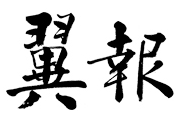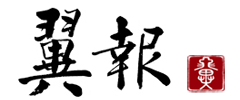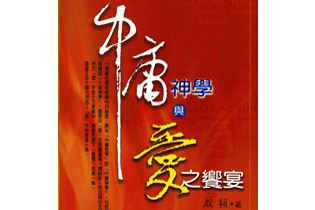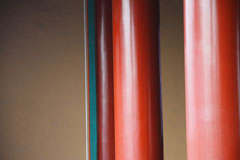集中營記(三)
融洽的戴家
我們濰縣這個自治政府有命令發出。人人必須工作,俘虜輪流擔任一切─煮飯,燒烤,清潔廁所。我姊管洗衣服,我哥哥是一名操作唧筒的打水員和垃圾夫,弟弟做煤球,我在上課前或散學後掃地,洗地板,補衣服,冬天看火爐子,提煤屑。日軍祇配給碎煤屑,沒有塊煤。
凡事都有好的一面也有壞的一面。拿起你的鎬頭來,為了冬天只有煤屑燒而煩躁,甚至抱怨先得把盆子裏的冰敲碎,候其溶化後才能洗臉,可是到底還有煤可燒,不是嗎?
年輕的女孩子們列一長行,手提煤屑,從日兵士住所附近運到宿舍來,大家一齊哼着“人手多,工作輕”之句。寒風中工作,手起了凍瘡,皮膚裂開,我們還得用手做着煤球。每次兩鏟煤屑,一鏟粘土,潑上水。大人們互相交換混合法的經驗。冬季陽光下,煤球乾得透徹。
我祖父(戴存仁牧師,自1881年至1932年在中國工作五十一年。──譯者)年近八十,是全營中唯一不必工作的,他是戴德生家的第二代僅存的一位,體重已減到不能再減的八十磅了。看他瘦弱之軀,藏在那鬆肥的陳舊衣服裏,有人誠懇的對他說:“戴老祖父,讓我把你的衣服改得合體好嗎?”他總是抱以微笑,臉上散發着光輝。“上主必將我脫離這地方,到那時衣服還是會適體的。”他說得不錯!直到勝利,他還活着,終被飛機接回英國去了。
有些成年人彼此說,戴老祖父好像兩隻腳一踏在天上,一在地下。我不時去找祖父,舒適地躺在他身旁。我纖細的手指觸摸着他有波紋,絲般的銀鬚,和臉上在中國某地被狂犬咬傷像似灼傷的疤痕。來自煙台的學生,惟獨我們兄弟姊妹四人有祖父一同被拘此營。
我對濰縣的懷念迄今仍感親切,不無原因。

1939年作者在煙台入學時與其哥,姊,父母及祖父合照
提起集中營來,人人都會想到盟國俘虜在東南亞各地飢餓下的長途跋涉,在歐洲,臂腕被刺號頭如同動物,甚至慘受毒氣室的死刑。濰縣並無類似情形,能說壞嗎?
不必多說,痛苦,悲哀的經歷當然是述不盡的。可是我們終能勝過一切,至少在清除臭蟲捕蠅,捉鼠各方面的成績是斐然的。星期六我們訂之為“大戰臭蟲日”小刀和指甲是我們的利器,尋索所有的縫兒,不拘枕,毯,被單,或床鋪,將蟲和卵一齊殺掉。
練習簿用完了,就用橡皮把字擦掉,周而復始,直到擦無可擦,紙破為止。
蒼蠅太多,令人大起恐慌,學生們被組織起來,實施捕蠅運動。小弟約翰把他努力的成績──蒼蠅三千五百,一起細心數好,裝在一只玻璃瓶裏,結果榮獲第一名,獎品是一盒罐頭肉醬,取自紅十字會的救濟物品。
假如大家對着夜晚在床上蹦蹦跳跳的老鼠發抖,我們便合力組成打鼠運動,彼此競爭一番,棒打,籠捉,最後以火或水滅之。可賀我們芝罘學校克利夫領導的一組獲勝,共六十八隻包括成績揭曉前最末一天的三十隻。亞軍的紀錄是五十六隻。
五年睽隔,父親的面孔將感模糊,唯聲音猶在耳邊。他日常會在我的名字瑪莉後面加個“甜心”。我們戴家人總用“可以”來回答對方的要求,可知融洽的程度。(作者的父親戴永冕牧師,1894-1978,享年八十四歲。自1917年開始在中國工作,直到七十二歲退休,整滿五十年。戴家的祖父,父,子,三代牧師獻身中國共一百五十二年,紀錄空前,亦將絕後。──譯者)
聲浪如同傳自遠方,又好似從留聲機唱出來的:“戴家的一切事好商量,沒有不能兩字在口上!”
遠在太平洋諸島嶼的戰爭此刻正熾,一場戰爭能死傷四萬人。在戰爭結束和平來臨前將有四千萬人死於非命。
圍牆內,兒童們另有天地。我哥雅各常從三樓的窗戶爬到一條枯樹幹上來察看天溝背後一巢麻雀育雛的生態。倘若得其法,恰合時間,他能將口嚼中的麵包糊直送到幼雛口中。
運動的略況也值得記述。食物供缺下,半飢餓狀態的人該不該運動?聽說上海和香港集中營有醫生反對在這種環境下從事運動。但是濰縣卻不同,精神生活同樣重要,因此至少我們在每星期六練籃球,曲棍球和足球。節目的主持人是曾在世運會得過金牌的李愛銳。我們輒取其名直呼“愛銳叔叔”,或用其綽號“蘇格蘭的飛毛腿”。
營中的人大半識得李愛銳其人,其事。繒聲繒影,他被喧染吹捧得過分。在他榮獲金牌多年後,有一描繪他大半生成就的影片“火焰戰車”問世,把他的運動經驗和生活型態加以戲劇化了。例如他拒絕於星期日出場參與世運的節目,因與其信仰有抵觸。實際上他並未那麼嚴肅或擺大架子,他也不喜風頭。凡合乎他自己趣味的工作,他都肯默默地自動去做。與他久處之後,再想想這個人,二十年前原是一位搶盡了各國報紙標題,又是橄欖球(美式足球)和徑賽界的風雲人物,實在有些不可思議。
我們的曲棍球棒壞了,就去找李愛銳。他取自床單撕剪下的布縷來將它捆扎妥當,外加整修,完後宛若新品。有些青年人由於那漫無盡期,單調得要死的俘虜生活,便暗中偷情,尋找情慾之歡。為挽頹勢,他就聯合傳教士們專闢一處,夜晚舉行遊戲和比賽。天津來的學生趕不上功課,他就抱奮勇擔任教授科學一項。營中有三個廚房,互相比賽成績和效率,結果李愛銳工作的第一號房穩拿了第一。如此說來,有誰會不喜歡李愛銳呢?
1945年,寒冬多雪的二月間,李愛銳患腦腫瘤逝世了。大家聞訊莫不驚呆而惋惜。葬禮舉行時,學生們組成一個儀仗隊,示哀致敬,由生前至友抬了棺,葬在日士兵住處不遠被指定的狹小墓地上。(距勝利僅六個月,長眠此地者已三十餘人,故估計死於集中營的人數應在四十名左右──譯者)這裏,就算作在中國的一小片蘇格蘭地土吧!(七七事變後,李愛銳為家屬安全計,已將妻子兒女送加拿大暫居,因此他可能是加國公民。──譯者)
對於一般無可口飯食不肯吃飯的孩子們來說,飢就非吃不可,這裏的伙食是絲毫不成問題的。初期,早餐的主食一律是高粱米和綠豆煮飯,外加足夠的麵包。午飯是一些燉或煮的食物,燉,煮,千篇一律。夜飯將午間的剩飯加在一起再燉,煮。燉好的飯多加水不是就叫做“湯”嗎?
祇有神經健全勇武的人才能在管生肉的部分工作。送來的肉,暖季總是長滿了蛆的,可說是隨除隨長,因到處蒼蠅太多。看看那顏色發黑邊沿作淺色的肝,管肉的人下不得手,不敢作主,找醫生提提意見。可吃嗎?大概是老騾子的,希望不是病肝。咳!不管一切,入廚就是了。
如果你想領略人性最惡劣的一面,可以來看俘虜營裏那些行動粗魯的飢民所擺的大長龍。飢餓的人常會因生氣而失去控制自己,手推或扑向管理分配食物的人,嫌他勺子使用的不公平,分給自己的不足,別人則說太多,這本是出力不討好的工作。
由於平時的教誨,我們這些煙台孩子們自制力強,抱着公道冷靜的態度看得入神。體弱不支的年老女性於排隊刷洗飯具時常因事故而爭吵,以至彼此灑水來洩忿。我們煙台來的這一批人從未失禮過。
老師時常叮囑我們要保持態度,一個人不可能有兩種性格,自由身是一樣,當俘虜又是一樣。不論從罐頭盒挖着厚厚的食品吃,或喝着盤子盛的稀湯,成熟文雅的樣子都應當保持,正像白金漢宮裏那兩位公主一樣。
坐得直,食物不可滿口塞,嚥後再說話,刀子撞盤不出聲,羹匙舀湯向外,講話聲低,不抱怨…
戰爭的日子延長下去,食物的供應也漸減少了。樂觀的想法是盟國正逐步取勝中。可是日本人會不會將有限的儲糧對敵國的俘虜照舊配予呢?此時成人的體重減至一百磅的已不在少數。一些憤世嫉俗,不滿現狀的人常常私下作無益於事的爭辯:俘虜先被解救呢?還是大家先餓斃在俘虜營裏呢?關於這些事,老師對我們一向守口如瓶。

營中文娛事項的公告
1944年,美國超空中堡壘的基地已在中,印兩國和太平洋的馬利阿納島完成,正在轟炸日本土中。多時,肉食不見供應,連高粱,綠豆也沒有了。司廚的人發明了麵包糊:用陳腐的麵包浸水過夜濾去混水,加進麵粉同煮,用桂皮和糖精調味。對於忍飢挨餓的人,沒有一樣食物是不可入口的。
據說慣於動勞力的人每天需要四千八百單位的熱量,否則三千六百即夠。營裏的醫生們(俘虜)估計每人每天僅獲熱量一千二百。大家在沉默中接受着長期的飢餓,結果是顯而易見的:憔悴消瘦,體力枯竭,神情麻木。有人失重一百磅之多,孩子們的牙齒暗無光采,已發育的少女月經停止。
老師們發現雞蛋殼可添入食物中藉此增加鈣的供應不足。徵得營中醫生的同意後,就將保留的蛋殼洗淨,烤焦,搗碎,研磨成粉,送到宿舍來,用羹匙逐一送到我們口邊。面對難以下嚥的粗粉,我們要吐出,要噴出,但不可能,我們就咀嚼之勉強嚥下去。
這並不能說老師們太沒溫情。當我的生日那天,一位老師弄到一只蘋果來給我慶祝一番。一只蘋果本不是件大禮物,可是這場面對我來說是十分重要,覺得母愛就出現在眼前。她召我到醫院的背後,祇有我們兩人。她取一只鐵盒,放在一個臨時爐灶上,用枯枝,生了火,將蘋果樹削成薄片,我在元片裏找到了蘋果花,一片一片的在油中煎了給我吃。這件事當時,我覺得像在玩魔術,又似進入幻境。四十年來,我還要在蘋果片上找那蘋果花兒。在我的生命中,沒有一個生辰紀念糕點堪與那次煎的蘋果片可比,更有意義,更叫我開心。
雖然在戰爭失去自由之下,這份禮物委實給我保存了童年的歡愉,是我一生永誌不忘的事。倘若我們這些稚子之心那時是無邪無憂的,年紀較大的孩子卻另有一些想法和憂慮。那就是,大學教育,就業出路,愛情婚嫁等等。姊姊凱琳業已及齡,想到愛情的時候到了,她時常戴着俏皮的小帽,美髮捲了蓬鬆帶彈性的大卷,稍覆前額,餘髮後梳。
她的一個好友抱怨着說:“我們已被上主忘記了。”“我們幾時才能恢復自由?祇怕結婚這件事今生是無望的了!”營養不良的我,激素在我身上並未萌芽,所以不會傻想那些事。(下期續)![]()
A Song of Salvation at Weihsien Prison Camp
Mary Taylor Previte
III
Self-government at Weihsien ruled that every able-bodied person should work. The prisoners did everything—cooked, baked, swabbed latrines. My older sister, Kathleen scrubbed clothes. Jamie pumped long shifts at the water tower and carried garbage. John made coal balls. Before and after school, I mopped my square of floor, mended clothes, stoked the fire, and carried coal dust. Not coal. The Japanese issued only coal dust.
Like every other Weihsien problem, coal dust had its dark side and its bright side. You could take your pick. You could grump yourself miserable about having only coal dust to burn; or, when you were breaking the ice in the water bucket in the morning to wash your face, you could count your blessings that you had anything at all to fuel the stove.
We younger girls made a game of carrying the coal buckets. In a long human chain—girl, bucket, girl, bucket, girl—we hauled the coal dust from the Japanese quarters of the camp back to our dormitory, chanting all the way, “Many hands make light work.” Then, in the biting cold, with frostcracked fingers, we shaped coal balls out of coal dust and clay—two shovels of coal dust, one shovel of clay and a few splashes of water. Grown-ups swapped coalball recipes. Winter sunshine made the coal balls dry enough for burning.
One person in the camp who didn't work at a job was Grandpa Taylor. Almost 80, and the only surviving son of J. Hudson Taylor, he had dwindled away to less than 80 pounds. His cloths bagged around his emaciated frame. “Grandpa Taylor,” people begged him, “let us take in your clothes to make them fit.”
He always smiled, his face haloed with glory: “God is going to bring me out of Weihsien,” he used to say. “And I'm going to fit in these clothes again.” (He was right; he did survive the war and was flown back to England.)
The grown-ups said Grandpa looked as though he had one foot on Earth and the other in heaven. I snuggled up next to him on his bed and ran my little fingers through the crinkly silk of his snow-white beard to feel the cauterized scar on his cheek where a rabid dog had bitten him in his early days in China. Of all the children in the Chefoo School, we Taylors were the only ones to have a grandpa in the camp.
Why do I remember Weihsien with such tender memories?
Say “concentration camp” to most people, and you bring forth visions of gas chambers, death marches, prisoners branded and tattooed like cattle. Auschwitz. Dachau. Bataan.
Weihsien was none of that.
A wash in a cesspool of every kind of misery, Weihsien was nonetheless, for us, a series of daily triumphs—earthy victories over bedbugs and rats and flies. If you have bedbugs, you launch the Battle of the Bedbugs each Saturday. With knife or thumbnail, you attack each seam of your blanket or pillow, killing all the bugs and eggs in your path.
If you run out of school notebooks, you erase and use the old ones again—and again—until you rub holes through the paper.
If you panic at the summer's plague of flies, you organize the schoolchildren into competing teams of fly-killers. My younger brother John—with 3,500 neatly counted flies in his bottle—won the top prize, a can of Rose Mille pate, food sent by the Red Cross.
If you shudder at the rats scampering over you at night, you set up a Rat Catching Competition with concentration camp Pied Pipers clubbing rats, trapping rats, drowning them in basins, throwing them into the bakery fire. Our Chefoo School won that contest, too, with Norman Cliff and his team bringing in 68 dead rats—30 on the last day. Oh, glorious victory! The nearest competitor had only 56.
One, two, three, four, five years I hadn't seen Daddy. I could still hear his voice: “Mary Sweetheart” - he always called me Mary Sweetheart — “there's a saying in our family: A Taylor never says ‘I can't.'”
In the far reaches of my mind, like a needle stuck on a gramophone record, I heard the messages playing:
A Taylor never says “I can't.”
Thou shalt not be afraid…
Somewhere out there, the war dragged on. Midway. Guadalcanal. Eniwetok. Saipan, where more than 40,000 were killed or wounded in one battle. Forty million people would die before the madness ended.
But inside our prison walls, we preserved the wonders of childhood. From the third-floor window of his dormitory, Jamie perched in a hollow tree trunk behind a rain gutter and watched a family of sparrows nesting and raising their young. If he did it right, he could chew up bread saved from Kitchen Number One and get the fledgling sparrows to eat the mush right out of the side of his mouth.
There were also sports. If the food supply is dwindling and starvation is near, should you expend your energy on sports? In other Japanese prison camps in Shanghai and in Hong Kong, doctors advised against games and exercise because prisoners had no energy to spare. But Weihsien was different. Nourishing the spirit was as important as feeding the body. So on any weekend after school, we children played basketball or rounders, hockey or soccer. The man who organized these games was Olympic gold medal winner Eric Liddell—Uncle Eric, we called him. The Flying Scotsman.
Almost everyone in camp had heard of Eric Liddell. The folklore about him seemed almost bigger than life. In later years, the film Chariots of Fire would dramatize the accomplishments of this man who refused to run in the Olympics on Sunday because of his religion. But Uncle Eric wasn't a Big Deal type; he never sought the spotlight. Instead, he made his niche by doing little things other people hardly noticed. You had to do a lot of imagining to think that Liddell had grabbed world headlines almost 20 years earlier, an international star in track and rugby.
When we had a hockey stick that needed mending, Uncle Eric would truss it almost as good as new with strips ripped from his sheets. When the teenagers got bored with the deadening monotony of prison life and turned for relief to the temptations of clandestine sex, he had some missionary teachers organized an evening game room. When the Tientsin boys and girls were struggling with their schoolwork, Uncle Eric coached them in science. And when Kitchen Number One competed in races in the inter-kitchen rivalry, well, who could lose with Eric Liddell on our team?
One snowy February day in 1945, Liddell died of an inoperable brain tumor. The camp was stunned. Through an honor guard of solemn schoolchildren, his friends carried his coffin to the tiny cemetery in the corner of the Japanese quarters. There, a little bit of Scotland was tucked sadly away in Chinese soil.
For a child who used to have to be bribed to eat a bite of food, eating the concentration camp fare was no problem at all. I was hungry! In the early days of the war, we lived no gao liang, the roughest broom corn, or lu dou beans cooked into hot cereal for breakfast, and all the bread we wanted. Lunch was always stew, stew, stew. “S.O.S.,” we called it: Same Old Stew. Supper was more leftover stew—watered down to soup.
Only the stouthearted could work in the butchery with the maggot-ridden carcasses. Plagues of files laid eggs on the meat faster than the team could wipe them off. When the most revolting-looking liver—horribly dark, with a hard, cream-colored edge—arrived with the day's food supplies, the cooks called in our school doctor for a second opinion. Was it fit to eat? Probably an old mule, he guessed. So we ate it.
If you wanted to see the worst in people, you stood and watched the food line, where griping and surliness were a way of life. Hungry prisoners were likely to pounce on the food servers, who were constantly being accused of dishing out more or less than the prescribed half dipper or full dipper of soup. It was a no-win job.
Having been taught self-control, we Chefoo children watched the cat fights with righteous fascination. Shrieking women in the dishwashing queue hurled basins of greasy dishwater at each other. Flights were common. But not among the Chefoo contingent.
Our teachers insisted on good manners. There is no such thing, they said, as one set of manners for the outside world and another set for a concentration camp. You could be eating the most awful-looking glop out of a tin can or a soap dish, but you were to be as refined as the two princesses in Buckingham Palace.
Sit up straight. Don't stuff food in your month. Don't talk with your mouth full. Don't lick your knife. Spoon your soup toward the back of the bowl, not toward the front. Keep your voice down. Don't complain.
Food supplies dwindled as the war dragged on. If you wanted to be optimistic, you could guess that the Allies were winning and that you were going hungry because the Japanese weren't about to share their army's dwindling food with Allied prisoners. Grown men shrank to 100 pounds. But our teachers shielded us from the debates among the camp cynics over which would come first, starvation or liberation.
By 1944, American B-29 Superfortresses from bases in Calcutta, China and the Marianas were bombing Japan. There were many meatless days. When even the gao liang and lu dou beans ran out, the cooks invented bread porridge. They soaked stale bread overnight, squeezed out the water and mixed up the mush with several pounds of flour seasoned with cinnamon and saccharin. Only our hunger made it edible.
An average man needs about 4,800 calories a day to fuel heavy labor, about 3,600 calories for ordinary work. Camp doctors guessed that the daily food ration for men in our camp was down to 1,200 calories. Although no one said so out loud, the prisoners were slowly starving. The signs were obvious—emaciation, exhaustion, apathy. Some prisoners had lost more than 100 pounds. Children had teeth growing in without enamel. Adolescent girls were growing up without menstruating.
That's when our teachers discovered egg shell as a calcium supplement to our dwindling diet. On the advice of the camp doctors, they washed and baked and ground the shells into a gritty powder and spooned it into our spluttering mouths each day in the dormitory. We gagged and choked and exhaled, hoping the grit would blow away before we had to swallow. But it never did. So we gnashed our teeth on the powdered shells—pure calcium.
Still, there was a gentleness about these steely teachers. On my birthday, my teacher created a celebration—with an apple—just for me. The apple itself wasn't so important as the delicious feeling that I had a “mother” all to myself in a private celebration—just my teacher and me—behind the hospital.
In the cutting of wondrously thin, translucent apple circles, she showed me that I could find the shape of an apple blossom. It was pure magic. On a tiny tin-can stove fueled by twigs, she fried the apple slices for me in a moment of wonder. Even now, after 40 years, I still look for the apple blossom hidden in apple circles. No birthday cake has ever inspired such joy.
It was a lasting gift these teachers gave us, preserving our childhood in the midst of bloody war. But if we children filled our days with childish delights, our older brothers and sisters had typically adolescent worries: college, job, marriage. Kathleen, quite head-over-heels in love by now, was sporting a lovely page-boy coif with a poof of hair piled modishly over her forehead.
“God has forgotten all about us,” one of her friends moaned one day. “We're never going to get out of here. And we're never going to get husbands.” With malnutrition slowing down my hormones, no such foolishness entered my mind.
(英文原文經原作者同意在本報發表)



















